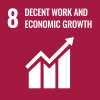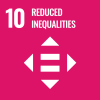Analyses of redistributive policies often focus on income flows to examine the nexus between redistribution and economic growth. With strengthening signs of growing economic inequality in many countries, an increasing number of economists investigated the existence and nature of a hypothetical trade-off between economic growth and equity. As signs of unsustainable development are strengthening more generally, this paper proposes to look at the broader nexus between redistribution, equity and sustainable development, emphasizing its social and environmental dimensions. It does so by first proposing an analytical framework defining the role of redistributive policies in shaping the private income cycle as well as the public revenue-expenditure cycle. This framework distinguishes between the stock of income-generating assets (such as human capital and wealth, including land and industrial and financial capital) and deriving income flows in order to clarify the difference between the two sides of in-equity (i.e. in-equality of opportunity and in-equality of outcome), which remain intertwined in the growth-equity trade-off debate. This stock-flow approach is then used to outline key linkages between redistributive policies, in-equity and un-sustainable development. Contrasting the potential scope of redistributive policies with the more narrow set of policies that have been implemented in most countries/regions over the last 30 years, the paper discusses 14 avenues for redistributive policies to promote greater equity, economic empowerment and sustainable development.
Redistributive Policies for Sustainable Development: Looking at the Role of Assets and Equity
Working Paper Date:
Category: Economic Analysis and Policy
Document Symbol: ST/ESA/2015/DWP/139
JEL Classification: D31, H2, H3, H4, H41, H71, H82, H87
Keywords: Income, wealth, Inequality, fiscal policy, redistributive policy, public social spending, revenue mobilization, progressive tax system, net wealth tax, carbon tax, international tax cooperation, unitary taxation, formulary apportionment, post-2015
Working Paper File:
1597341729.6086.pdf
1.23 MB
 Welcome to the United Nations
Welcome to the United Nations

